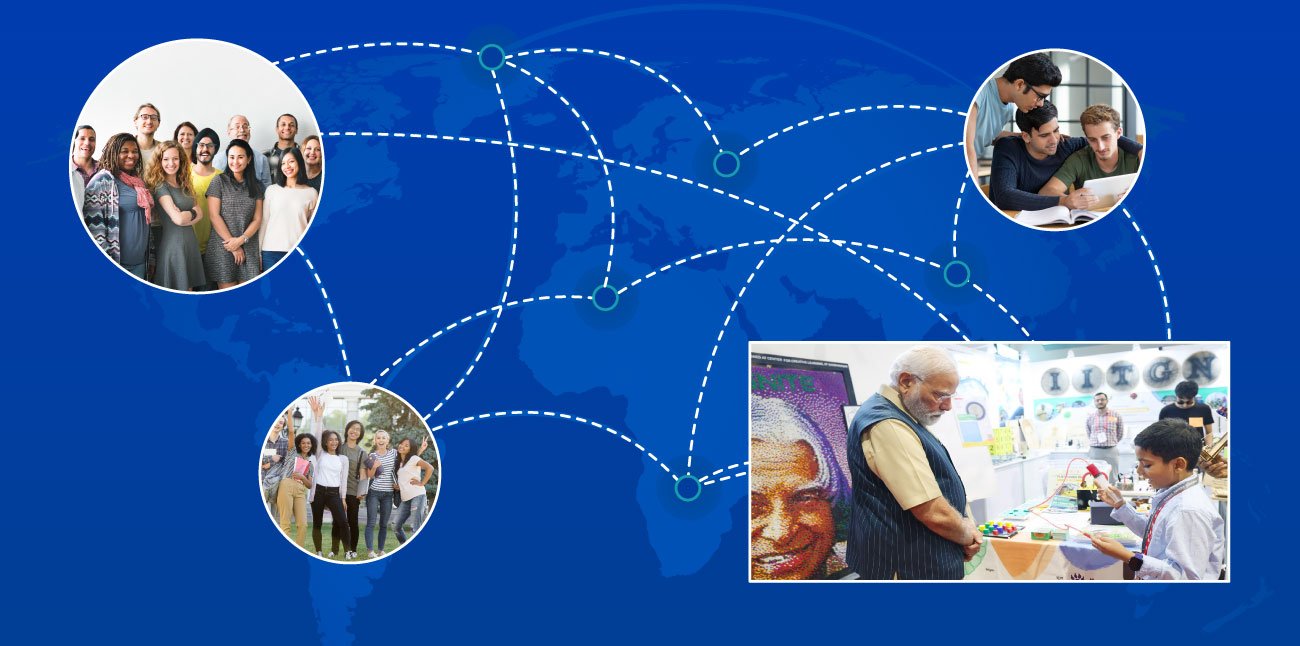How Brand Consultants Navigate Geopolitical Waves in India’s Higher Education
Posted by Edunoia on December 8, 2023
Geopolitical factors, such as diplomatic relations, international conflicts, and economic alliances, have an unmitigated impact on how Indian institutions are recognised on the global stage.
When political events, such as security concerns or diplomatic disputes, cast shadows on Indian higher education, consultants step in to mitigate the damage.
With a keen understanding of the global landscape and a knack for strategic storytelling, we can navigate the stormy seas of politics, helping institutions sail toward a brighter educational horizon.

India’s higher education sector, known for its diversity and depth, has been architectured by an elaborate tapestry of geopolitics. Geopolitical factors, such as diplomatic relations, international conflicts, and economic alliances, have an unmitigated impact on how Indian institutions are recognised on the global stage.
One striking example of this influence is the fluctuation in the enrolment of international students. Geopolitical tensions can expeditiously sway the preferences of students seeking quality education. Dr. Anjali Sharma, a renowned education policy expert, emphasises this point, stating, “The ebb and flow of international students in India is directly tied to geopolitical stability. When tensions rise, enrolments dip, and when diplomacy prevails, students flock to our institutions.”
Indeed, during periods of diplomatic tension between India and neighbouring countries, such as China or Pakistan, international student enrolment can witness a decline and the recent statistics testify the same. However, during times of improved relations or diplomatic initiatives, the numbers surge, highlighting the fragility of student enrolment in Higher Education.
Brand Consultants: Shaping the Narrative
In this dynamic landscape, brand consultants emerge as key players. They possess the expertise to shape the narrative and image of higher education institutions, navigating the turbulent waters of geopolitics. One of the primary functions of brand consultants is crafting a compelling identity for educational institutions that transcends borders. They punctuate the unique strengths and offerings of Indian universities, presenting them as attractive destinations for international students and faculty.
Let’s explore the case of the Indian Institute of Technology (IIT) system. Historically known for producing top-notch engineers, these institutions faced increased competition from global counterparts. Brand consultants worked closely with IITs to emphasise their legacy and cutting-edge research, ultimately positioning them as global leaders in technology education. The IITs saw a 50% increase in the number of international students applying in the last 5 years after they repositioned themselves and communicated their message more effectively.

Managing Crisis and Opportunity
In a world where geopolitics can reform overnight, brand consultants are adept at managing crises and leveraging opportunities. When political events, such as security concerns or diplomatic disputes, cast shadows on Indian higher education, consultants step in to mitigate the damage.
An illustrative example is the 2019 Pulwama attack in Kashmir, which led to heightened tensions between India and Pakistan. This incident prompted concerns among international students and faculty about safety in India. Brand consultants swiftly devised communication strategies to assure the global academic community of the safety measures in place, helping to prevent a steep drop in enrolments.
On the flip side, positive geopolitical developments can be leveraged to attract talent and resources. When India and the United States signed agreements to promote educational exchanges, brand consultants seized the opportunity to position Indian institutions as desirable destinations for American students, academicians, and researchers.
Strategies for Success
To thrive in this geopolitically charged environment, Indian higher education institutions need well-crafted strategies. These strategies should be aligned with national and institutional goals and sensitive to the global political climate.
Dr. Rajesh Khanna, a policy analyst specialising in education, emphasises the importance of adaptability, stating, “In this era of rapid change, flexibility is paramount. Institutions must be prepared to adjust their strategies to align with shifting geopolitical sands.”
Brand consultants, with their finger on the pulse of global trends and perceptions, play a vital role in helping institutions create and adapt these strategies. They constantly monitor geopolitical developments and advise institutions on how to position themselves effectively.
Soft Power Diplomacy: A Geopolitical Tool
Geopolitics is not just about navigating risks; it’s also about seizing opportunities. Some countries have successfully deployed higher education as a tool of soft power diplomacy. India, with rich history and cultural diversity to its credit, possesses a unique advantage in this regard.
Brand consultants, in collaboration with governmental bodies, can promote India’s cultural and educational assets on the global stage. By establishing cultural centres, offering scholarships, and promoting Indian languages and arts, they can enhance India’s soft power influence, attracting international students and fostering international collaborations.
Conclusion: The Art of Balance
In the intricate dance between geopolitics and higher education in India, brand consultants are the choreographers, ensuring that institutions maintain their footing amid the ever-shifting terrain. They craft narratives that transcend political borders, manage crises with finesse, and seize geopolitical opportunities.
As India’s higher education sector continues to evolve in the context of geopolitics, the role of brand consultants remains pivotal. With a keen understanding of the global landscape and a knack for strategic storytelling, they navigate the stormy seas of politics, helping institutions sail toward a brighter educational horizon. In this journey, brand consultants prove that, indeed, branding is not just about logos and slogans; it’s about steering the ship through geopolitics’ turbulent waters.


